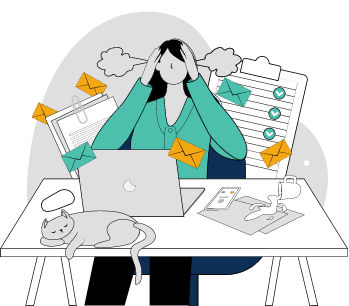Listen to this episode
On this episode
What criteria do you use when prioritising the tasks on your to-do list? Do you just put them in the order you get them? Maybe you pick the ones that seem the most urgent?
Here’s an alternative: do the ones that are the easiest first. Not everything worth doing needs to be difficult!
In this quick dip episode, we talk about the reality of our limits. In a high-stress job, getting everything done in one day is nearly impossible. And that’s okay! What’s important is putting your focus where you can be most effective. You may have heard of the urgent-important matrix for prioritising, but we’re taking it up a notch using the impact-effort matrix. We will teach you how to define the impact you want to create and acknowledge the reality of the effort needed to make that impact.
Stay tuned to this episode if you want to know how prioritising your life might require completely different criteria from what you thought.
Show links
Effortless: Make It Easier to Do What Matters Most by Greg McKeown
Here are a couple of You’re Not a Frog podcast episodes to check out:
Reasons to listen
- Learn why prioritising your tasks based on impact and effort can help you be more effective.
- Discover how to direct your focus towards things that are easier to do.
- Understand that you have limited time and energy. Don’t waste them on things that won’t make you happy or don’t make much of an impact.
Episode highlights
Know Your Limits so You Can Focus
What to Focus On
Define Your Impact
The Reality of Effort
The Effort Impact Matrix
# 1 High Impact and High Effort Tasks
# 2 High Impact and Low Effort Tasks
# 3 & #4 Low Impact and High Effort Tasks
Rethink Your Prioritising
Episode transcript
Rachel Morris: This is a You are Not a Frog Quick Dip, a tiny taster of the kinds of things we talk about on our full podcast episodes. I’ve chosen today’s topic to give you a helpful boost in the time it takes to have a cup of tea, so you can return to whatever else you’re up to feeling energised and inspired. For more tools, tips and insights to help you thrive at work, don’t forget to subscribe to You are Not a Frog wherever you get your podcasts. This Quick Dip episode, I’m going to talk about how…










